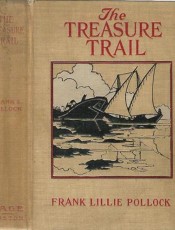nothing can efface this memory, nothing can efface the whole impression of germany; in retrospect this picture rises clear—the fair aspect and order of the country and the cities, the well-being of the people, their contented faces, their grave adequacy, their kindliness; and, crowning all material prosperity, the feeling for beauty as shown by their gardens, and, better and more important still, the reverent value for their great native poets and musicians, so attentive, so cherishing, seeing to it that the young generation began early its acquaintance with the masterpieces that are germany's heritage of inspiration.
such was the splendor of this empire as it unrolled before me through may and june, 1914, that by contrast the state of its two great neighbors, france and england, seemed distressing and unenviable. paris was shabby and incoherent, london full of unrest. instead of germany's order, confusion prevailed in france; instead of germany's placidity, disturbance prevailed in england; and in both france and england incompetence seemed the chief note. the french face, alike in city or country, was too often a face of worried sadness or revolt; men spoke of political scandals and dissensions petty and unpatriotic in spirit, and a political trial, revealing depths of every sort of baseness and dishonor, filled the newspapers; while in england, besides discord of suffrage and discord of labor, civil war seemed so imminent that no one would have been surprised to hear of it any day.
so that i thought: suppose a soul, arrived on earth from another world, wholly ignorant of earth, without any mortal ties whatever, were given its choice after a survey of the nations, which it should be born in and belong to? in may, june and july, 1914, my choice would have been, not france, not england, not america, but germany.
it was on the seventh day of june, 1914, that frankfurt assembled her school children in the opera house, to further their taste and understanding of germany's supreme national art. exactly eleven months later, on may 7, 1915, a german torpedo sank the lusitania; and the cities of the rhine celebrated this also for their school children.
